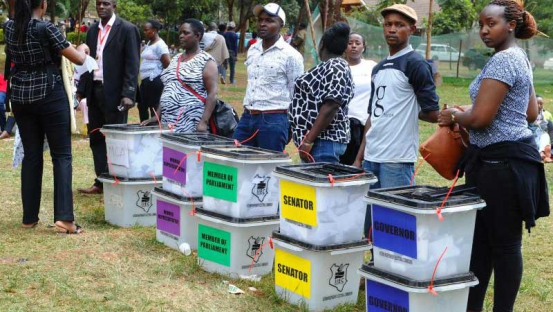×
The Standard e-Paper
Fearless, Trusted News

Political parties are scrambling to recruit agents to man the polls as it emerges that they would be a key factor in winning the presidential election as effects of Friday’s ruling by the Court of Appeal starts being felt.
Indications are that this could cost over Sh1 billion for the two main contenders in the presidential race, Jubilee and NASA, and this figure may soar, considering there are six other presidential candidates.